Health And Medicine
-

Diversity key in antibody repertoire
Antibodies to the 2009 H1N1 influenza strain reveal new insights into how antibody diversity forms and functions, with possible implications for designing flu vaccines. Read MoreOct 7, 2011
-
Fungus toxin gets in the way in DNA
Structural studies are providing insight to how aflatoxin – a toxin produced by fungi – contributes to cancer development. Read MoreOct 7, 2011
-
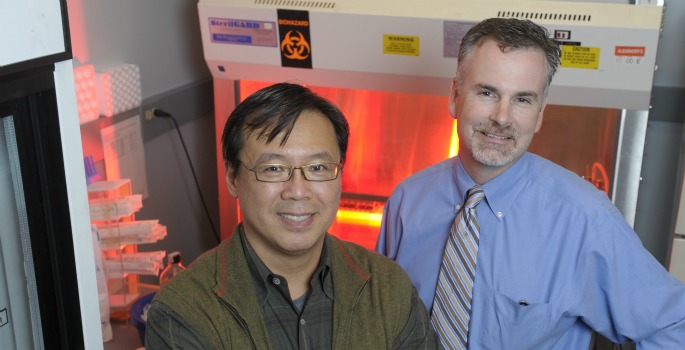
Heart protein may be target for colon cancer therapies
A protein critical in heart development may also play a part in colon cancer progression. Read MoreOct 7, 2011
-

Parkinson’s deep brain target fired up
Neuronal activity in a deep brain region increases as Parkinson’s disease advances, a new study suggests. Read MoreOct 5, 2011
-

Drug-like molecules aimed at improving treatment of Parkinson’s
Drug-like molecules described by Vanderbilt researchers could lead to Parkinson's treatments with fewer side effects. Read MoreSep 30, 2011
-

Folate may lower breast cancer risk for some
Low folate levels may increase a premenopausal woman’s risk of developing breast cancer. Read MoreSep 29, 2011
-
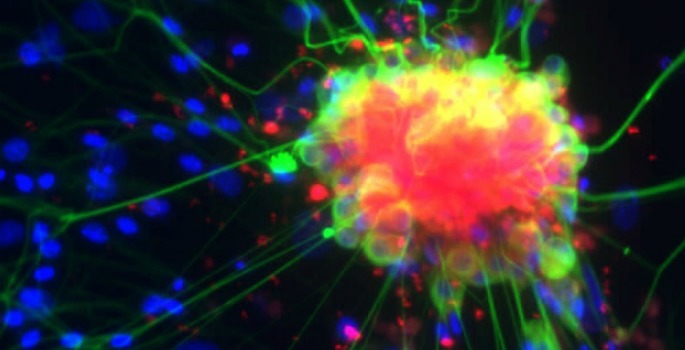
Study puts a new spin on ibuprofen’s actions
Vanderbilt University investigators have discovered surprising new insights into the actions of NSAIDs. Read MoreSep 29, 2011
-

New study confirms safety of eight vaccines
A report released by the Institute of Medicine confirms the safety of eight vaccines studied by a committee of experts. Evidence showed no links between immunization and serious conditions that have raised concerns, including Type 1 diabetes and autism. Read MoreSep 28, 2011
-

Examining the ethics of sharing genetic risk information
Should scientists inform participants in genomic studies about their risk for diseases or conditions discovered during the studies, and if so, when and how? A Vanderbilt professor is part of a team working to answer these questions. Read MoreSep 28, 2011
-
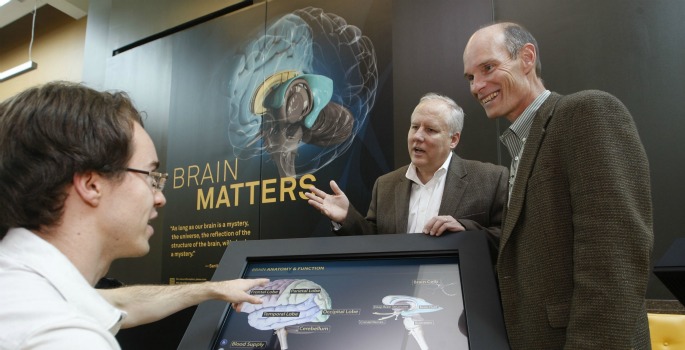
Interactive brain exhibit opens at Vanderbilt Health One Hundred Oaks
A state-of-the-art interactive exhibit on the brain and brain research has opened at Vanderbilt Health One Hundred Oaks. Read MoreSep 27, 2011
-
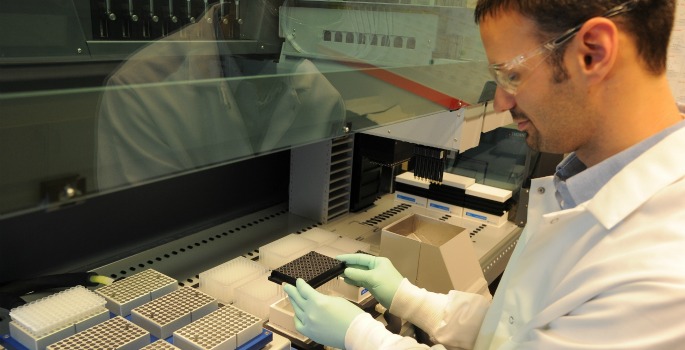
New drug-like molecules could improve schizophrenia treatment
The discovery of new compounds that work in a fundamentally different way than those in existing schizophrenia medications may allow for more normal function of brain cells involved in schizophrenia. Read MoreSep 22, 2011
-

‘Toolkit’ makes medical procedures less stressful for children with autism
Resource for physicians and parents created to make routine medical procedures less stressful for children with autism. Read MoreSep 21, 2011
-
Milestone in development of new treatment for ‘fragile X’
Researchers at Vanderbilt University Medical Center, in collaboration with Seaside Therapeutics in Cambridge, Mass., have achieved a milestone in the development of a potential new treatment for fragile X syndrome, the most common genetic cause of autism. Read MoreSep 15, 2011
-

Common eye treatments can lead to antibiotic-resistant ‘superbugs’
A new study shows ophthalmologic antibiotics promote antimicrobial resistance, prompting a call from Vanderbilt Eye Institute physicians to be more judicial in administering the drugs. Read MoreSep 15, 2011
-

Impact of diabetes, obesity on glioma patients studied
A new study indicates that patients with high-grade glioma brain tumors who have preexisting type 2 diabetes or obesity have poorer outcomes, and is the first to use the Vanderbilt Brain Tumor Center Clinical Database to report a novel clinical finding. Read MoreSep 15, 2011
-

Future diabetes vaccine?
Video: Watch this story about a breakthrough drug study that may prevent type-1 diabetes. Read MoreSep 12, 2011
-

Host countermeasure hinders HIV
New details about a host mechanism that fights off HIV may reveal strategies for therapies to treat or prevent HIV infection. Read MoreSep 8, 2011
-

Getting the right fit for hearing aids
The pattern of hearing loss across sound frequencies affects the benefit from hearing aids. Read MoreSep 8, 2011
-

Looking up: VU pediatrician is top amateur astronomer
There is a list, famous among astronomers, of 110 faint objects in the night sky, first cataloged by French astronomer Charles Messier in the 18th century. A “Messier marathon” is when astronomers begin at dusk and work until dawn, hoping to locate every single one, searching amid the field of… Read MoreSep 2, 2011
-

Starvation diet kills staph bacteria
The antibiotics of the future could take a page from the immune system’s playbook – and “starve” bacteria of the nutrients they need. Read MoreAug 26, 2011